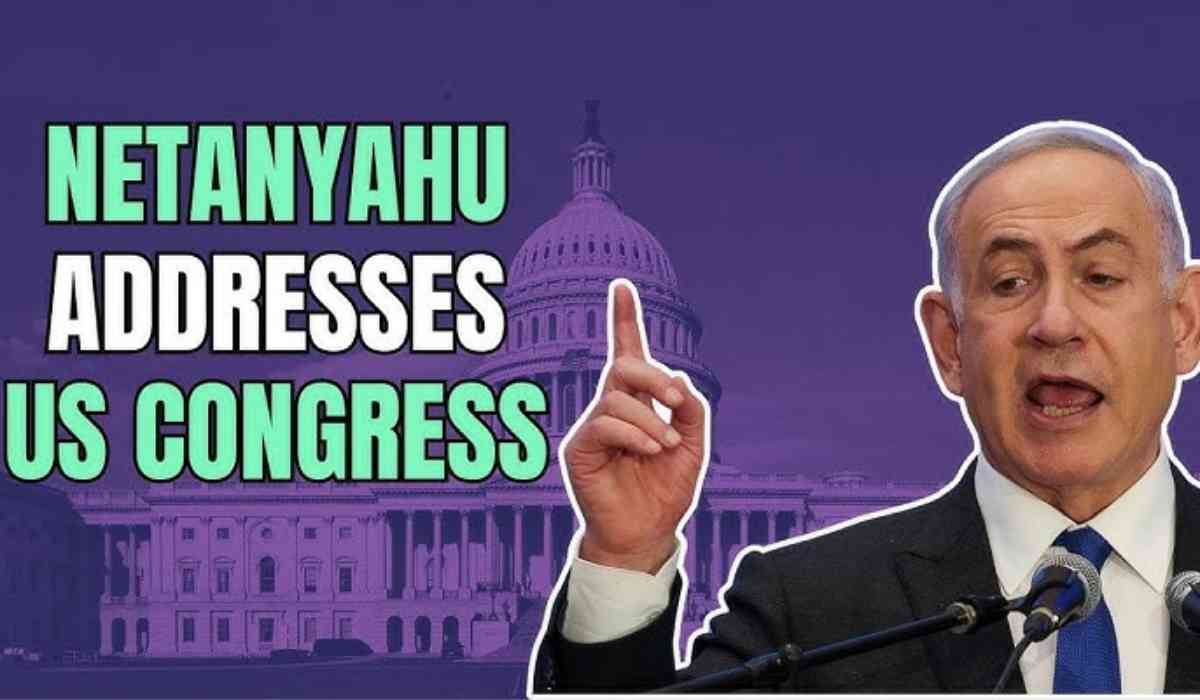Prime Minister Benjamin Netanyahu’s recent address to the US Congress was a masterclass in poise and rhetoric, met with enthusiastic applause from many attendees. However, the speech fell short of offering new policy directions or concrete changes, leaving some analysts and observers disappointed.
In his speech, Netanyahu dedicated significant time to defending Israel against international criticism following the October 7 Hamas attack and the ongoing conflict that has lasted nearly 300 days. While he adeptly positioned Israel on the global stage and reinforced existing support, his address missed several opportunities to drive meaningful change or propose new strategies.
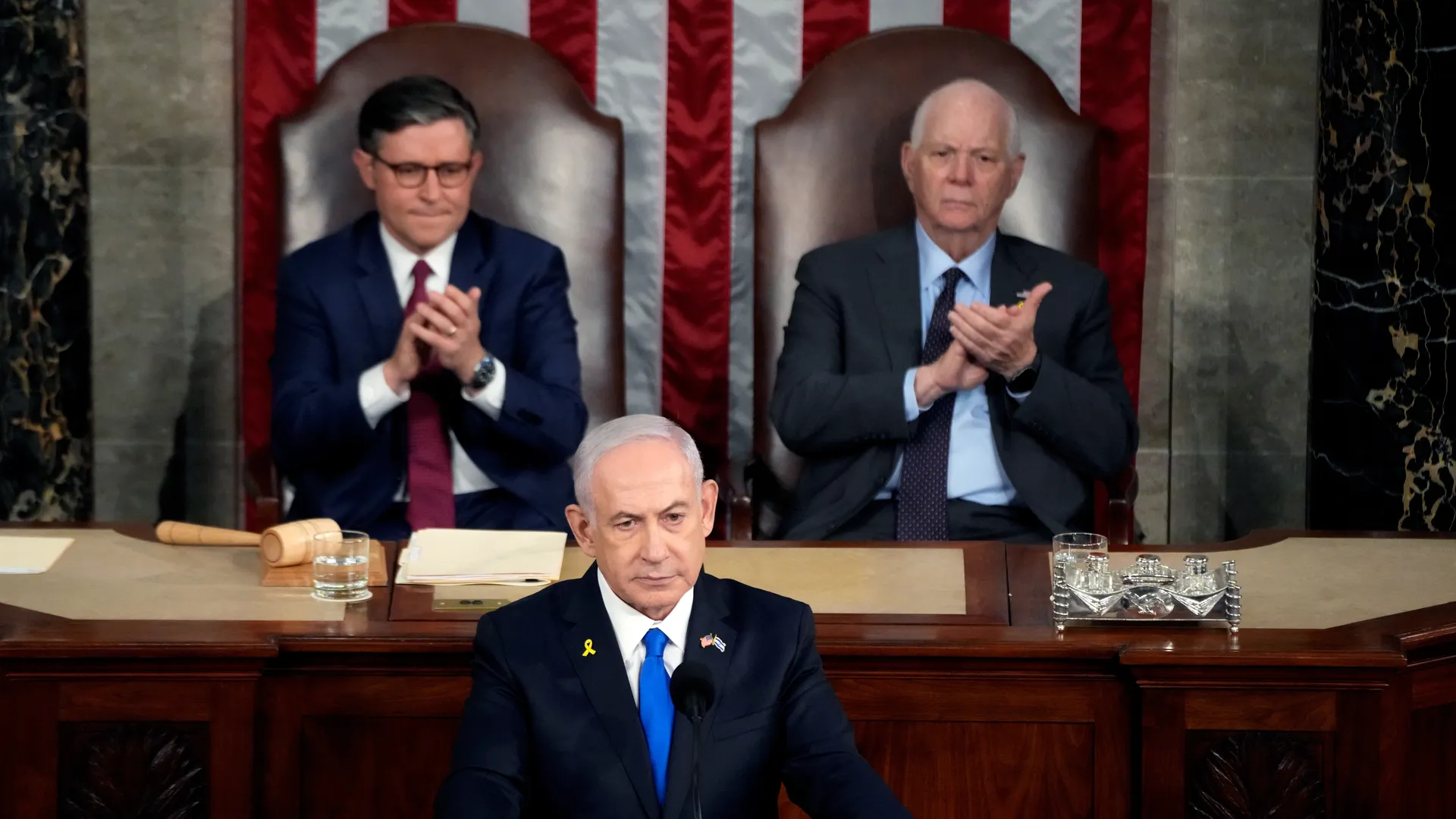
Context and Reception
Netanyahu's visit was orchestrated by House Speaker Mike Johnson, reflecting the Republican Party's steadfast support for Israel as they anticipate future power shifts post-November presidential elections.
Kamala Harris, who had recently launched her presidential campaign, was scheduled to meet with Netanyahu later in the week but did not preside over his congressional address—a traditional role for vice presidents. Meanwhile, both President Joe Biden and former President Donald Trump are also slated to meet with the Israeli leader later this week.
However, Netanyahu's address was notably boycotted by several prominent Democrats, including Nancy Pelosi, Bernie Sanders, Rep. Alexandria Ocasio-Cortez, Rep. Jim Clyburn, and Rep. Ilhan Omar. Their absence was a direct response to their concerns over Netanyahu's handling of the Israel-Hamas conflict.
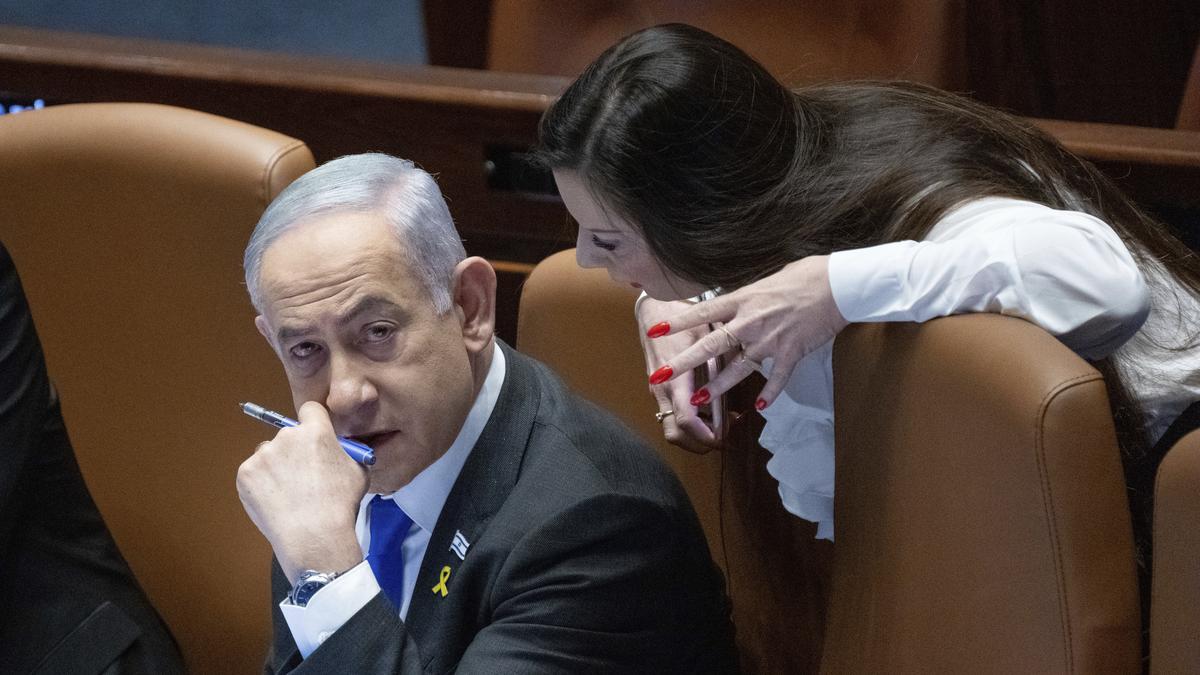
What did Netanyahu cover in his one-hour speech to Congress? Here are the key takeaways.
1. Iran: ‘Our enemies are your enemies’
In his speech, Netanyahu underscored the notion that Israel and the United States share a mutual enemy: Iran. He asserted that the real threat is not from the Palestinians, but from Iran, which he framed as a central force of instability and aggression in the region.
-
Shared Threat: Netanyahu stressed that both nations face a common enemy in Iran. He pointed out that Iran’s hostility is not limited to Israel but extends to the United States as well. He quoted the chants from Tehran, emphasizing that Iran’s animosity towards Israel is part of a broader threat to both countries.
-
No Concrete Plan: Despite his emphasis on the threat posed by Iran, Netanyahu did not offer a concrete strategy for countering Iranian aggression. His speech focused on highlighting the danger without proposing specific actions.
-
Regional Impact: Netanyahu argued that conflicts involving groups like Hamas, Hezbollah, and the Houthis are ultimately reflections of Iran's influence. He suggested that Israel's battles with these groups are part of a broader struggle against Iranian radicalism, which also threatens the United States.
Dan Diker, president of the Jerusalem Center for Public Affairs, noted that Netanyahu’s aim was to remind the American public of Iran’s destabilizing role in the region, which is central to understanding the broader context of Israel's conflicts.
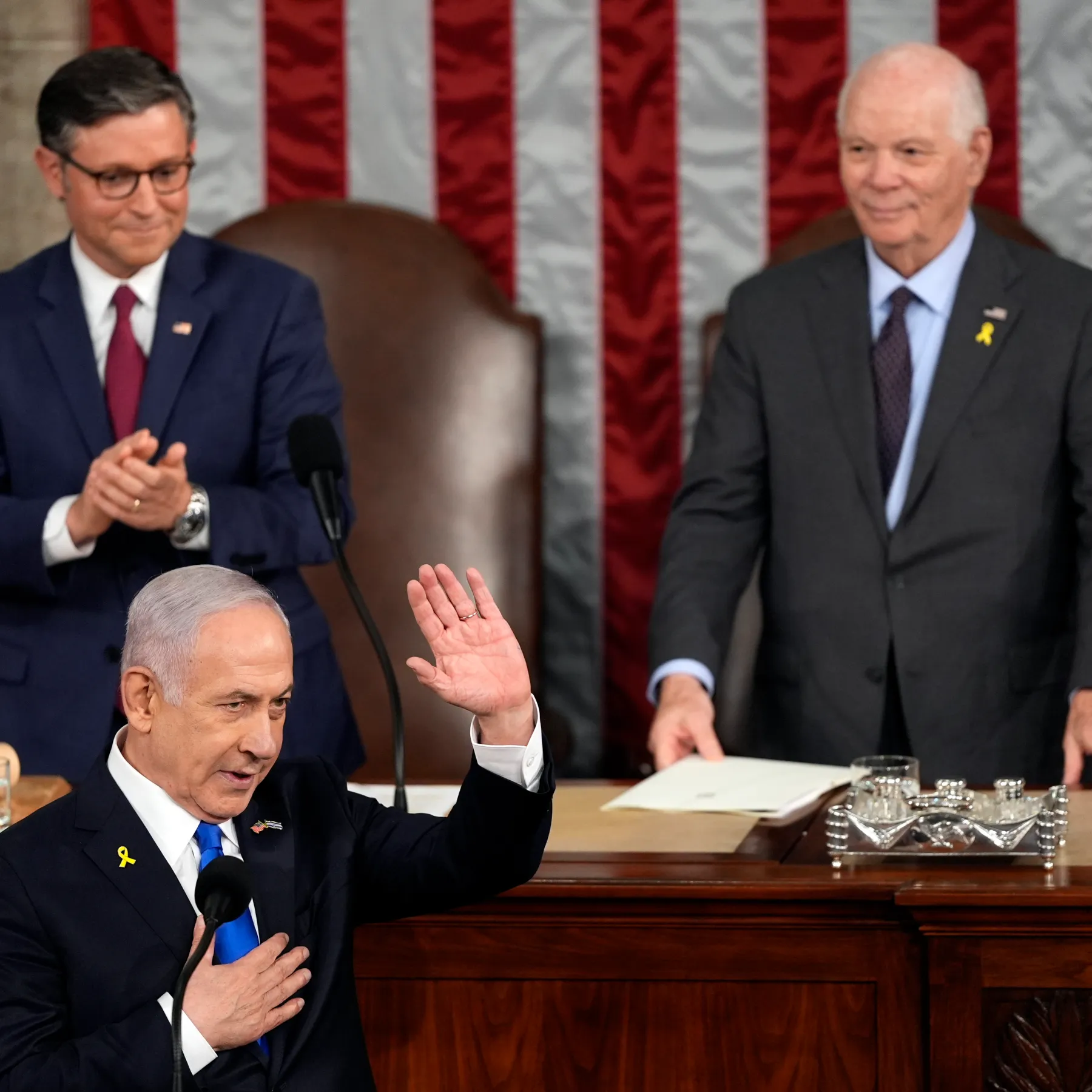
2. Challenges to Saudi Normalization
Netanyahu also discussed his vision for an "Abraham Alliance," which includes a push for normalization with Saudi Arabia. This initiative is part of a broader strategy to strengthen regional alliances and was seen as a significant diplomatic goal for both Netanyahu and President Joe Biden.
-
Abraham Alliance: Netanyahu presented the idea of building an alliance with Saudi Arabia as a key objective. He positioned this as a legacy goal that aligns with the interests of both Israeli and U.S. leadership.
-
Failure to Address Palestinian Statehood: A major point of contention in Netanyahu’s speech was his lack of commitment to Palestinian statehood. Netanyahu did not indicate any willingness to make concessions that would advance Palestinian sovereignty. This omission is significant because it affects the feasibility of normalization with Saudi Arabia.
-
Political Constraints: According to Koplow, Netanyahu’s hesitation to address Palestinian statehood stems from fears of destabilizing his coalition. The Israeli Prime Minister is cautious about making concessions that could lead to internal dissent, particularly from right-wing members like Bezalel Smotrich and Itamar Ben Gvir.
-
Impact on Saudi Deal: The recent vote by Israel’s far-right Knesset to reject the establishment of a Palestinian state further complicates prospects for a deal with Saudi Arabia. This decision undermines Israel’s claims of seeking peace and makes it challenging to advance normalization efforts without addressing Palestinian concerns.
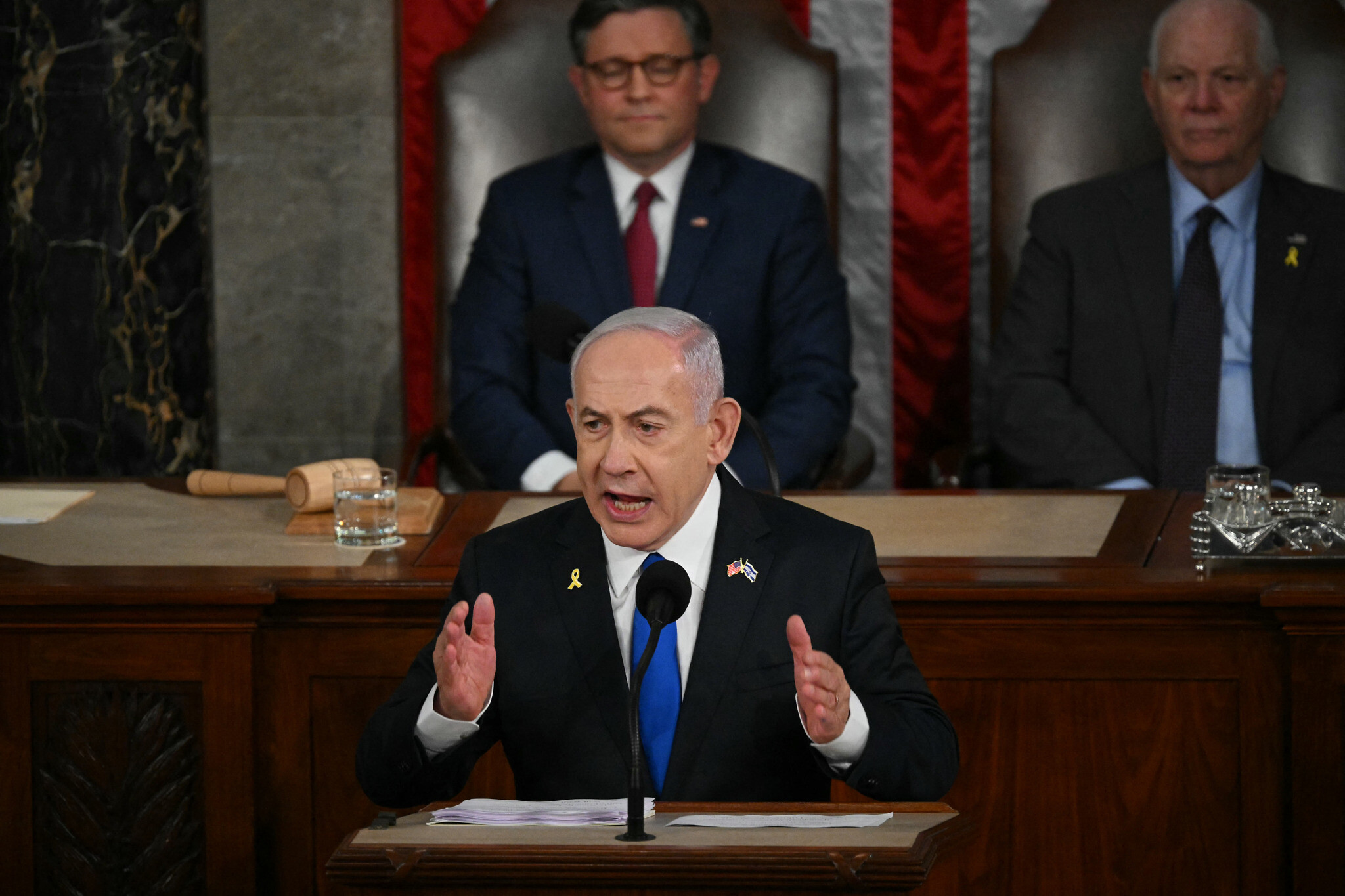
3. Hostages: A Commitment to Secure Their Release
-
Addressing the Families: Netanyahu began by emphasizing the immense pain experienced by families with loved ones held hostage by Hamas. He declared, “The pain these families have endured is beyond words,” and vowed, “I will not rest until all their loved ones are home. All of them.”
-
Notable Presence: Noa Argamani, a hostage previously held by Hamas, was present at the Congress during Netanyahu’s speech. Her presence highlighted the personal impact of the hostage situation.
-
Current Situation: The Israeli Defense Forces (IDF) confirmed the recovery of the bodies of four hostages and a soldier killed on October 7. It is feared that more than a third of the remaining 116 hostages in Gaza may be deceased.
-
Rescue Operations: Netanyahu took credit for a recent successful commando rescue operation, which included the rescue of Argamani and three other hostages. He praised the efforts of Israeli special forces and specifically mentioned Arnon Zmora, a heroic officer who died during the operation.
-
Ongoing Commitment: Despite the progress, Netanyahu did not elaborate on the current efforts to free the remaining hostages in detail. Instead, he promised unwavering resolve, stating, “No matter how long it takes, no matter how difficult the road ahead, Israel will not relent. Israel will not bend.”
-
Promise of Victory: He reiterated Israel’s commitment to defend its land and people, declaring, “We will fight until we achieve victory. The victory of liberty over tyranny, the victory of life over death, the victory of good over evil.”
4. Vision for Post-War Gaza: Demilitarization and Deradicalization
-
Demilitarized and Deradicalized Gaza Netanyahu outlined a broad vision for Gaza's future following the conflict. He proposed a plan for a "demilitarized and deradicalized Gaza," stressing that while Israel does not aim to resettle the area, it will need to maintain stringent security measures to prevent any resurgence of terrorism.
-
Future Governance and Security According to Netanyahu, the ideal scenario for Gaza post-conflict would involve a civilian administration led by Palestinians who do not seek Israel’s destruction. However, he did not address who would lead this administration, a significant point of contention between the U.S. and Israel.
-
Security Control and Military Aid Netanyahu called for expedited military aid from the U.S. and reiterated that Israel would only consider ending the war if Hamas surrenders and disarms. He emphasized that maintaining security control over Gaza is essential to ensure that the region does not again pose a threat to Israel.
-
Commitment to Peace and Security In summary, Netanyahu's speech highlighted Israel's dedication to both resolving the hostage crisis and achieving a stable and secure post-war situation in Gaza. His address combined a strong stance on military and security issues with a vision for future governance and peace.
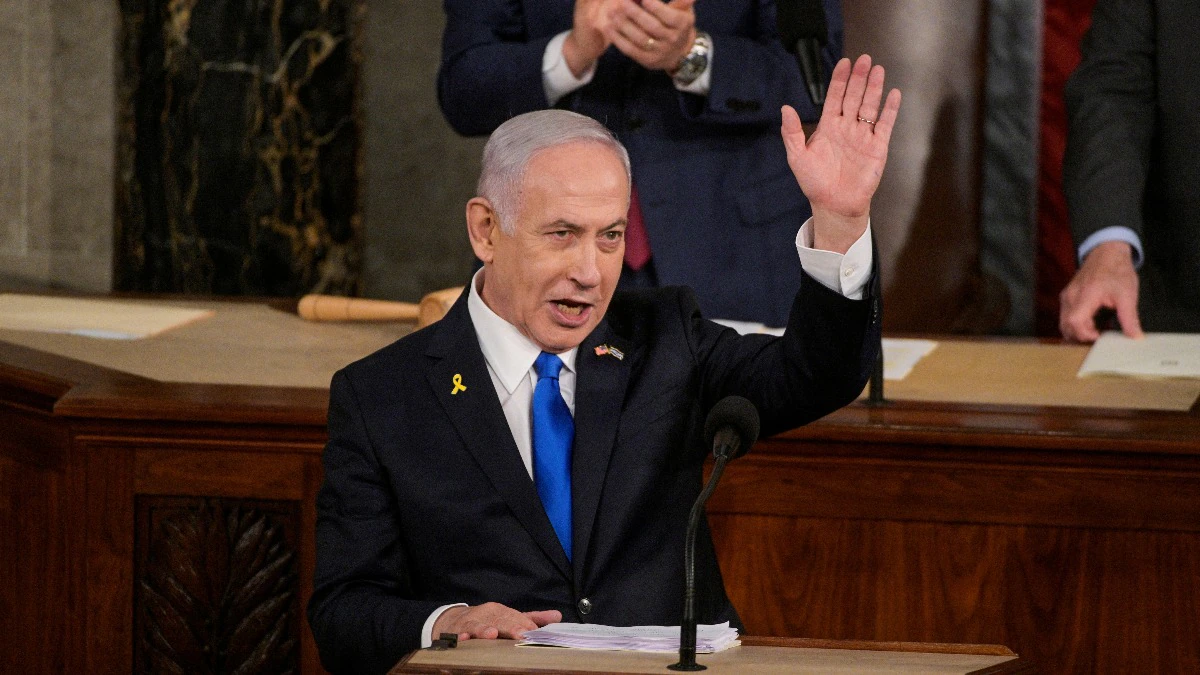
5. Engaging the Democratic Constituency
Targeting Undecided Democrats
Netanyahu’s speech was strategically aimed at garnering support from undecided Democrats. To achieve this, he highlighted several aspects of Israel's social and military policies:
-
Multiculturalism and Diversity: Netanyahu underscored Israel's commitment to multiculturalism and diversity. He presented Israel as a nation where people from various ethnic and religious backgrounds coexist and contribute to the country’s defense efforts.
-
Efforts to Minimize Civilian Casualties: He emphasized Israel’s efforts to minimize civilian casualties during military operations. This was aimed at addressing concerns among American Democrats regarding the humanitarian impact of the ongoing conflict.
-
Humanitarian Aid to Gaza: Netanyahu showcased Israel's provision of humanitarian aid to Gaza, including efforts to support civilians in the region despite the ongoing conflict.
Highlighted Figures
To reinforce his points, Netanyahu introduced key individuals:
-
Lieutenant Avichail Reuven: An Ethiopian Israeli soldier, who Netanyahu claimed ran eight kilometers to join the fight on October 7.
-
Master Sgt. Ashraf al Bahiri: A Bedouin soldier from the Israeli Muslim community of Rahat, who Netanyahu said demonstrated exceptional bravery by defending neighboring kibbutzim.
Netanyahu used these examples to illustrate the diverse and unified nature of the Israel Defense Forces (IDF), showcasing the bravery of soldiers from various backgrounds.
Netanyahu cited Col. John Spencer of West Point, who reportedly praised Israel's efforts to prevent civilian harm. Netanyahu argued that Israel’s measures go beyond international legal requirements, presenting statistics from Rafah where he claimed a significant number of terrorists were neutralized with relatively few civilian casualties.
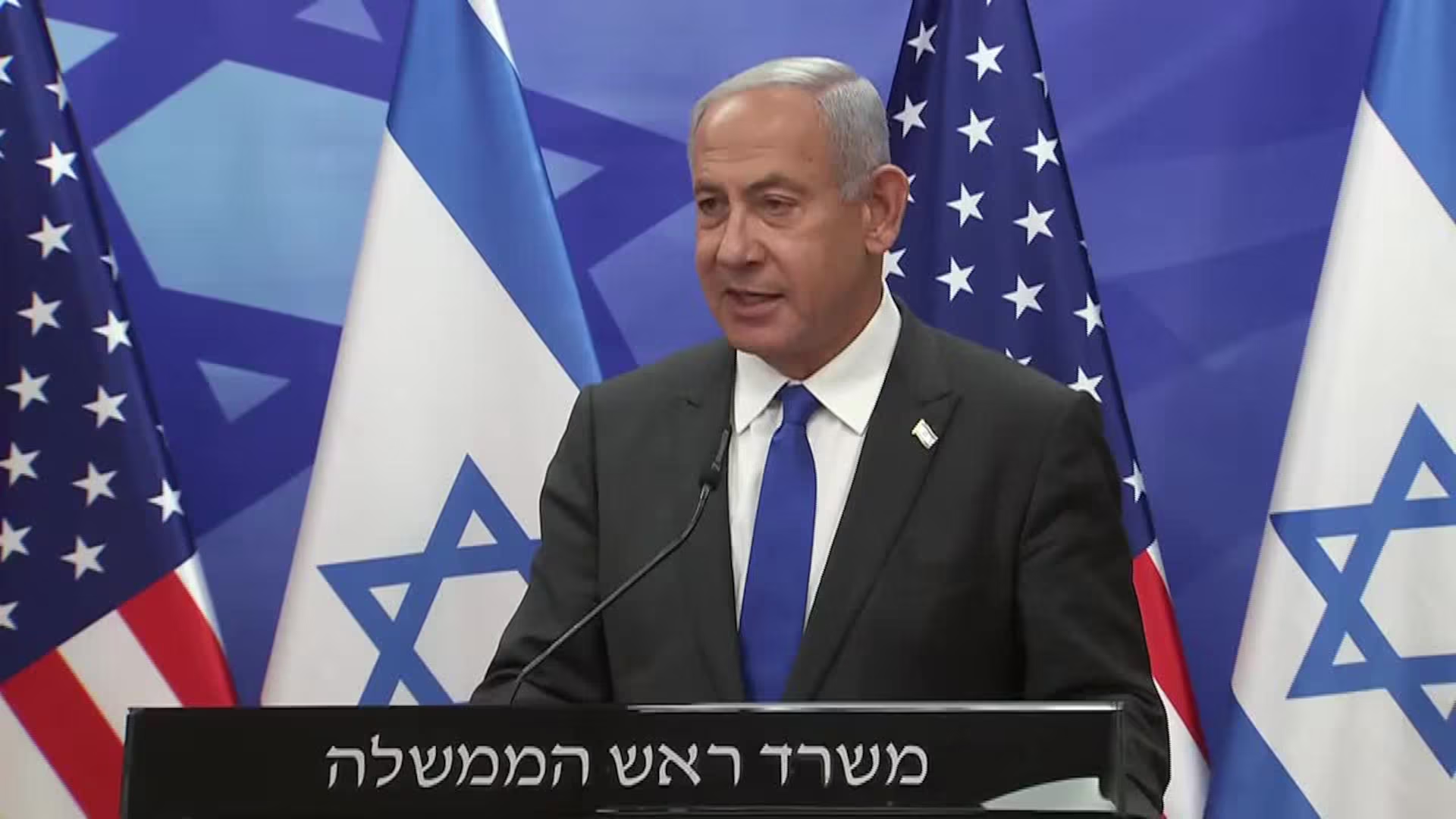
6. Acknowledging the Contribution of IDF Soldiers
Netanyahu made a point to honor Israeli Defense Forces (IDF) soldiers who were present in Congress. He praised their resilience and bravery, referring to them as “unbowed, undaunted, unafraid” and underscoring their crucial role in the conflict with Hamas. This recognition served to bolster the narrative of Israeli military strength and dedication.
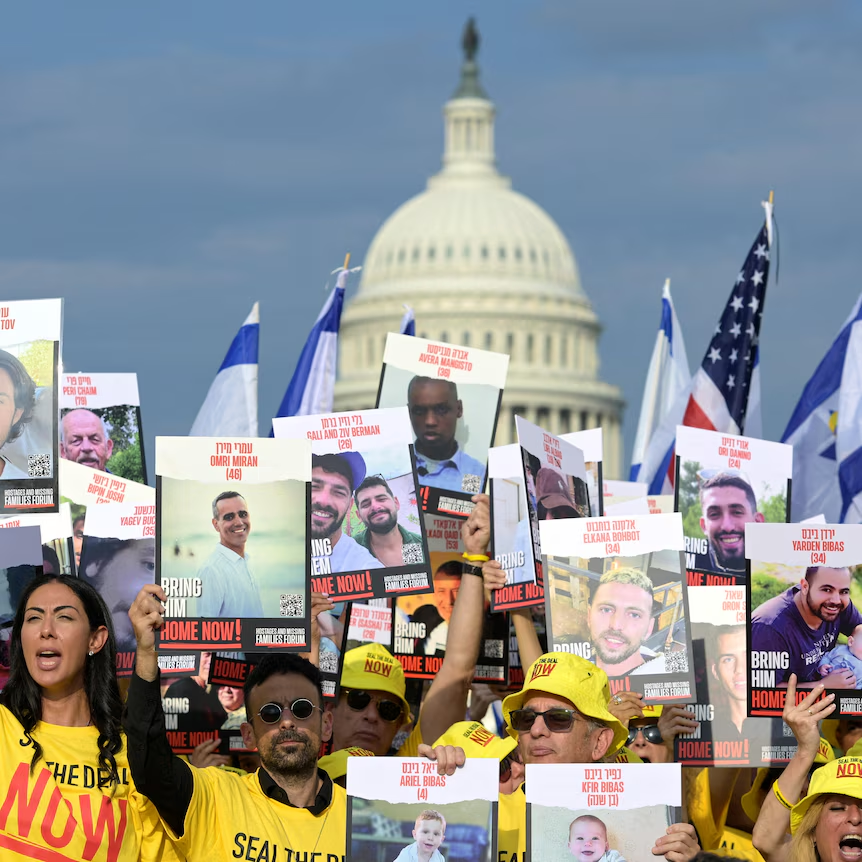
7. Criticism of Pro-Palestinian Protesters
Netanyahu criticized pro-Palestinian protesters, particularly those on university campuses, labeling them as “Iran’s useful idiots.” He conveyed a strong message to these protesters:
-
Association with Iran: Netanyahu accused the protesters of aligning with Iran, which he depicted as a regime known for severe human rights abuses. He suggested that the support and funding from Iran undermine the credibility of these protests.
-
Denunciation of Anti-Israel Sentiments: He asserted that those protesting against Israel should be ashamed, claiming that they are indirectly supporting extremist groups like Hamas, which he described as perpetrators of rape and murder.
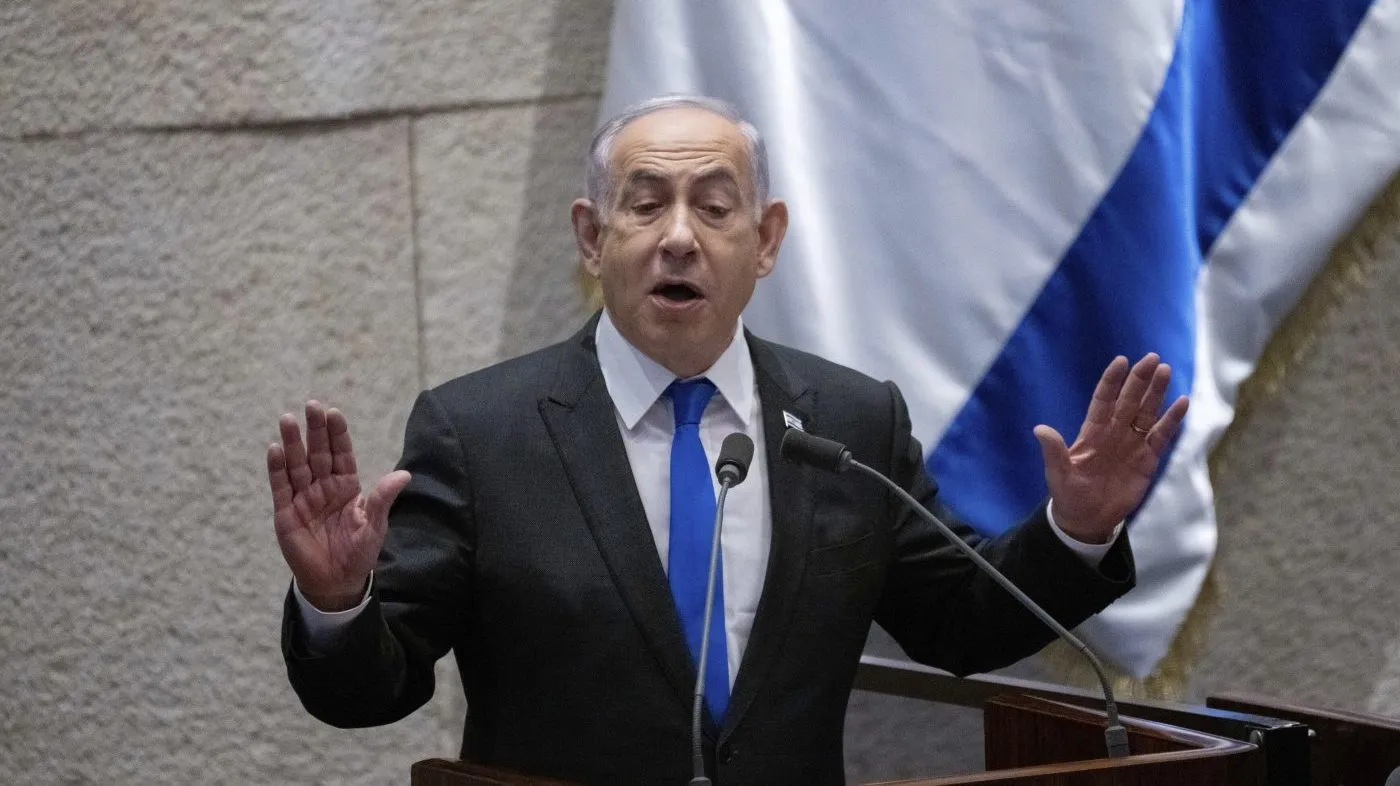
8. Appreciation for President Joe Biden
-
Gratitude for Longstanding Support: Netanyahu began his speech by expressing deep gratitude to U.S. President Joe Biden. He highlighted their long-standing personal relationship of over 40 years and praised Biden for his unwavering support of Israel. Netanyahu acknowledged Biden's self-identification as a "proud Zionist" and an "Irish American Zionist."
-
Acknowledgment of Recent Support: Netanyahu specifically thanked Biden for his actions following the brutal Hamas attack on October 7. He commended Biden for calling Hamas "sheer evil" and for sending two aircraft carriers to the Middle East to prevent a wider conflict. Netanyahu also appreciated Biden's visit to Israel during its "darkest hour," a gesture he assured would be remembered.
-
Subtle Criticisms and Appeals: Despite the praise, Netanyahu’s speech included subtle criticisms. For instance, he pointed out Israel's success in minimizing civilian casualties in Rafah, indirectly addressing critics, including those in Washington, who had questioned Israel’s efforts to protect civilians. Netanyahu also called for expedited U.S. military aid, likening the current situation to World War II. He cited Winston Churchill’s plea for "tools" to finish the job and appealed to the U.S. for faster delivery of military support to end the conflict in Gaza and prevent a broader war in the region. This plea appeared to be a response to perceived delays in U.S. munitions shipments.
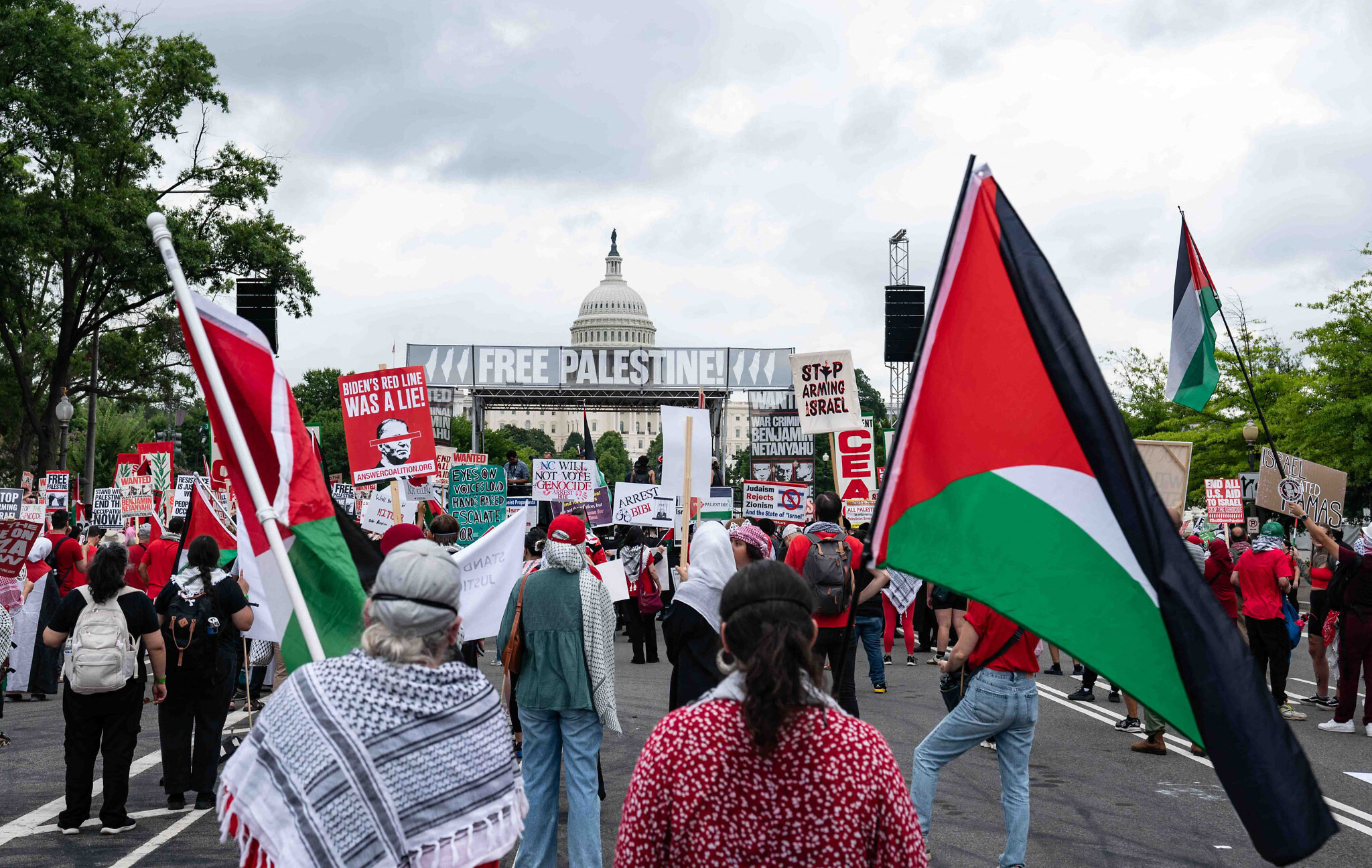
9. Appreciation for Former President Donald Trump
-
Acknowledgment of Trump’s Pro-Israel Actions: In addition to praising Biden, Netanyahu also took time to thank former President Donald Trump for his significant contributions to Israel. He highlighted several key actions taken by Trump, including recognizing Israeli sovereignty over the Golan Heights, addressing Iranian aggression, and moving the American Embassy to Jerusalem, thereby recognizing it as Israel’s capital.
-
Pre-Meeting Praise: Netanyahu’s comments about Trump came ahead of their scheduled meeting at Trump’s private estate in Florida. This public praise seemed aimed at improving Netanyahu’s standing with Trump, following tensions that had arisen after Netanyahu congratulated Biden on his election victory.
-
Recognition of Trump's Leadership: Netanyahu praised Trump for his role in brokering the Abraham Accords and expressed relief at Trump’s survival of a recent assassination attempt. This acknowledgment of Trump’s achievements and personal safety underscored Netanyahu’s appreciation for the former president’s support and leadership.
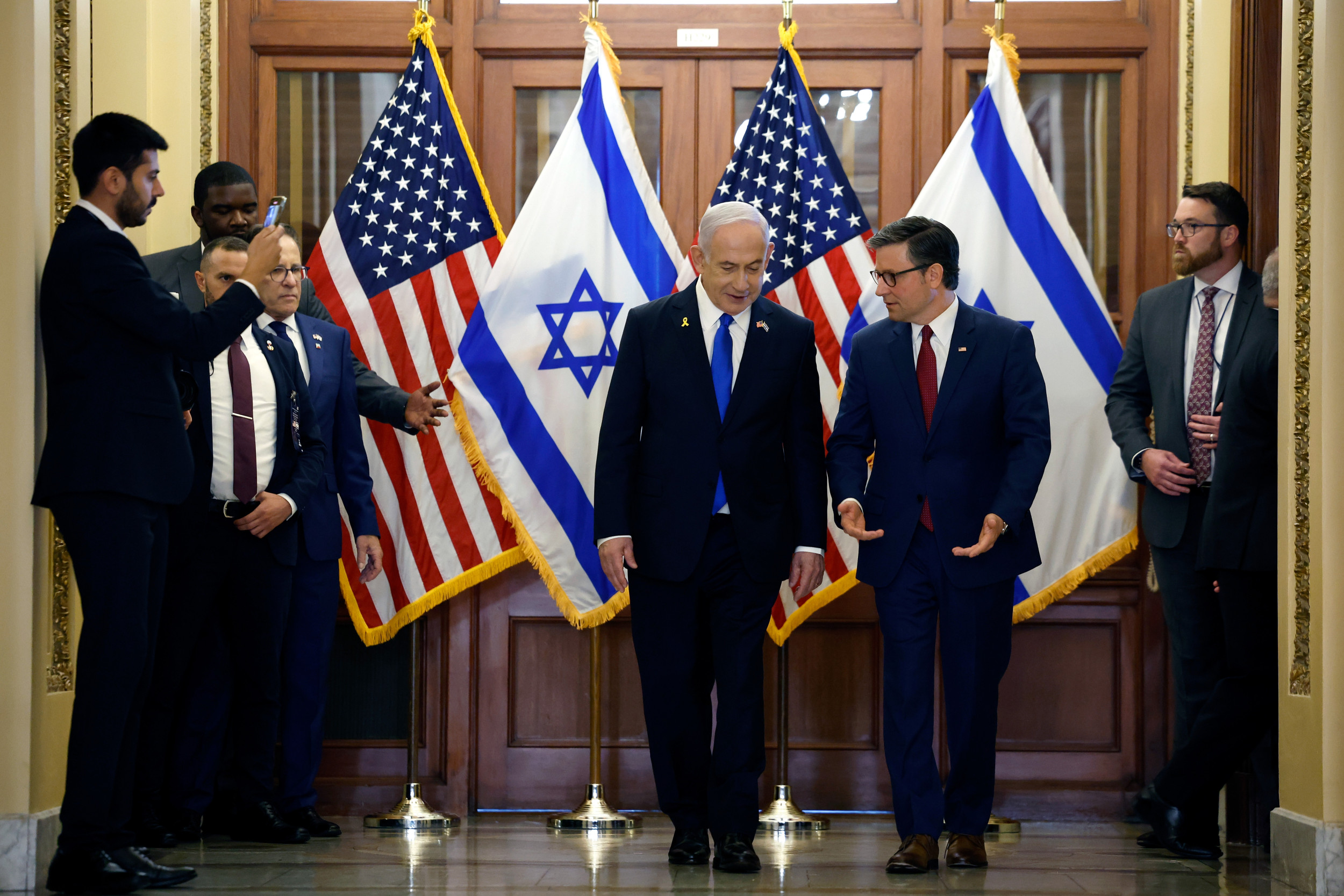
10. Visible and Subtle Protests
-
Standing Ovations and Boycotts: The Mixed Reception: When Israeli Prime Minister Benjamin Netanyahu addressed the U.S. Congress, the reception was a study in contrasts. Netanyahu was greeted with a nearly eight-minute standing ovation upon his arrival, and he received over 50 additional standing ovations throughout his speech. This enthusiastic response was notable for matching or even surpassing the reception he received during his previous three addresses to Congress.
However, the overall reception was not without its significant absences. The absence of several dozen congressional Democrats and some Republicans was particularly noticeable. Many of these lawmakers did not attend the speech, with some openly boycotting the event. This absence was a stark counterpoint to the enthusiasm shown by other attendees and highlighted a notable divide in Congressional sentiment regarding Netanyahu’s visit.
-
Protests and Disruptions: External and Internal Challenges: While Netanyahu's speech was being lauded inside the Capitol, the scene outside was far less favorable. Netanyahu downplayed the protests as “not that many,” but local media painted a different picture.
The protests were described as sizable and, in some instances, violent. Pro-Palestinian activists created significant disturbances during Netanyahu’s stay at the Watergate Hotel the previous day. They released mealworms, maggots, and crickets into his vicinity, and set off fire alarms throughout the night. These actions were intended to disrupt his rest before the crucial address.
-
Political Repercussions: The Absence of Kamala Harris: The absence of Vice President Kamala Harris from the speech also drew considerable attention and criticism. House Speaker Mike Johnson characterized Harris’s absence as a “terrible symbolic gesture,” suggesting that it could have political consequences for her. Johnson's remarks were echoed by others who saw Harris’s decision as a significant political misstep.
Meaghan Mobbs, Director of the Center for American Safety and Security, described Harris’s absence as “a shocking display of misplaced priorities.” Similarly, Ellie Cohanim, a Senior Fellow at the Independent Women’s Forum, criticized Harris for allegedly catering to the “radical left wing” of her party, which, in her view, contradicts the nation’s Judeo-Christian values. Cohanim warned that Harris’s stance could be indicative of a troubling future U.S. foreign policy under her potential presidency.
-
Looking Forward: Future Meetings and Potential Impacts: With the congressional address behind him, Netanyahu’s immediate future involves crucial meetings with President Joe Biden, Vice President Kamala Harris, and former President Donald Trump. These discussions are expected to be pivotal, potentially leading to significant policy shifts and influencing the ongoing conflict. The outcomes of these meetings could have far-reaching implications for U.S.-Israel relations and broader geopolitical dynamics.
Overall, Netanyahu’s speech to Congress was a blend of gratitude, subtle critique, and strategic praise, reflecting the complexities of international diplomacy and personal relationships in the context of U.S.-Israel relations.
With inputs from agencies
Image Source: Multiple agencies
© Copyright 2024. All Rights Reserved Powered by Vygr Media.

